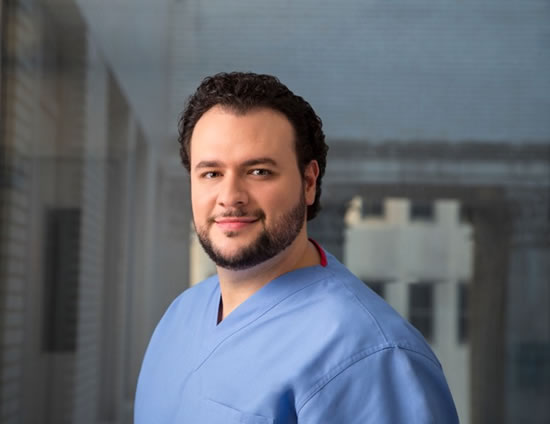ONLINE EXCLUSIVE
“What Is Fertility Surgery—And Why It Still Matters!”
By Jason D. Kofinas, MD, MSc, FACOG

Jason D. Kofinas, MD, MSc, FACOG
Fertility Surgery is a group of procedures aimed at removing female and male barriers to natural conception. In an age where In-Vitro Fertilization (IVF) has become common and very widely used, it is easy to forget the essential role that fertility surgery can play in the ability of a couple to achieve a pregnancy. There is a big difference between non-surgical fertility treatment options and actual fertility surgery. The former—which you might also hear called “non-surgical” or simply “medical” fertility treatment—can include a wide variety of options that you choose with the guidance of your doctor, and may include ovarian stimulation medications, intrauterine insemination (IUI), or cycle monitoring and stimulation.
Fertility surgery, on the other hand, is more likely to treat more serious conditions that may prevent you from getting or staying pregnant. Some of these conditions for example include uterine fibroids, adhesions, and endometriosis. For men, repair of dilated veins in the scrotum and reversal of vasectomies can overcome anatomic barriers to male fertility. In the article entitled “A Prospective Controlled Study of the Effect of Intramural Uterine Fibroids on the Outcome of Assisted Conception” published in the peer-reviewed journal Human Reproduction in 2001, Hart, Khalaf, Yeong, Seed, Taylor, and Braude showed that fibroids located in the wall of the uterine body halved the rates of successful pregnancy in assisted conception cycles. Besides decreasing the ability of couples to achieve pregnancy, fibroids are associated with miscarriage and early loss of an otherwise viable pregnancy.
Endometriosis is another reproductive condition that has profound effects on a woman’s fertility and reproductive life span. Endometriosis is a condition that can cause severe pain with menses, pain with intercourse and irregular vaginal bleeding. The mechanism of pain is most likely due to significant inflammation in the uterine pelvis leading to the release of substances that can cause severe pain. The presence of endometriosis in some women versus others is a mystery although an anatomic as well as an immunologic based theory of disease is gaining significant traction. The biggest concern we fertility doctors have is how to identify those women who have endometriosis and how to best preserve their fertility and/or assist them in reproducing. In a study published in the peer-reviewed journal Fertility and Sterility in the summer of 2018, Kasapoglu, Ata, Uyaniklar, Seyhan, Orhan, Oguz, and Uncu showed that women with stage 3 or 4 endometriosis (severe) defined by the presence of an endometrioma (ovarian cyst) have a significantly higher and rapid reduction in ovarian reserve. This leads to impairment of reproductive potential at a much younger age than a healthy control population. Endometriosis is a progressively destructive condition and can be treated effectively with fertility surgical intervention. This should restore natural fertility and decrease the progressive decline in reproductive potential.
When used appropriately, fertility surgery can be a safe and effective restoration of a couple’s fertile potential. It can completely eliminate the need for IVF which is an expensive and difficult treatment that for the conditions listed above has significantly lower success rates. Proper diagnosis and treatment of a couple leads to better treatment outcomes and fertility surgery continues to play a large role. #
Dr. Jason D. Kofinas is the Director of IVF and Research at Kofinas Fertility Group.
